by Juan Carlos Ojano
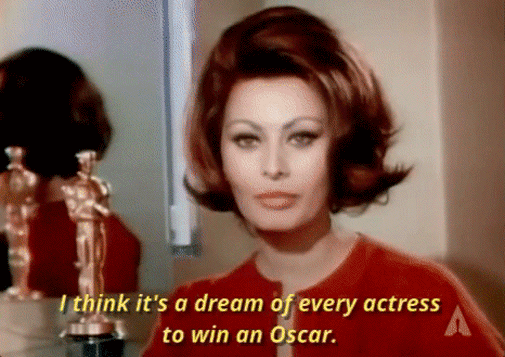
Cinema legend Sophia Loren makes a potential comeback with this year’s The Life Ahead this Friday on Netflix after more than a decade of career hiatus. Loren made history as the first Oscar winner for a performance not in the English language for 1961’s Italian film Two Women. Her second Best Actress nomination came with 1964’s Marriage Italian Style. If nominated for The Life Ahead, Loren would break the record for the longest gap between nominations with 56 years (though she'd only tie the record for most nominations for subtitled performances since her frequent co-star Marcello Mastroianni holds that record with three).
Loren is part of the longstanding tradition of Best Actress nominations for performances not in the English language (it happens far more often there than in other acting categories). Whether through sheer talent, strategic campaigning, and/or the dearth of quality roles for actresses in Hollywood, these performances overcame the one-inch barrier of subtitles and ended up with Academy recognition...
Here is the list of subtitled lead actress performances nominated before the year 2010:
 Liv Ullmann in The Emigrants
Liv Ullmann in The Emigrants
- 1960: Melina Mercouri - Never on Sunday (in Greek)
- 1961: Sophia Loren - Two Women (in Italian) *WINNER*
- 1964: Sophia Loren - Marriage Italian Style (in Italian)
- 1966: Anouk Aimée - A Man and a Woman (in French)
- 1966: Ida Kaminska - The Shop on the Main Street (in Slovak)
- 1972: Liv Ullmann - The Emigrants (in Swedish)
- 1975: Isabelle Adjani - The Story of Adele H. (in French)
- 1976: Marie-Christine Barrault - Cousin, Cousine (in French)
- 1976: Liv Ullmann - Face to Face (in Swedish)
- 1978: Ingrid Bergman - Autumn Sonata (in Swedish)
- 1989: Isabelle Adjani - Camille Claudel (in French)
- 1992: Catherine Deneuve - Indochine (in French)
- 1998: Fernanda Montenegro - Central Station (in Brazilian Portuguese)
- 2004: Catalina Sandino Moreno - Maria Full of Grace (in Colombian Spanish)
- 2006: Penélope Cruz - Volver (in Spanish)
- 2007: Marion Cotillard - La Vie en Rose (in French)*WINNER*
AND NOW THE 2010s...
While we await the global release of The Life Ahead, here are the women who generated awards conversation this past decade for their subtitled performances, though only four of them were lucky enough to receive an Oscar nomination.
 2010: Noomi Rapace was a stealth candidate for her work as hacker Lisbeth Salander in the Swedish adaptation of The Girl with the Dragon Tattoo. In the film, she crafts a performance of transgressive sharpness and mystery. While she ultimately missed out on an Oscar nomination, she did get BAFTA and Critics’ Choice nominations for the film. Ironically, the American adaptation of the same novel led to a nomination for Rooney Mara the following year. Elsewhere in prestige conversations of the time, Oscar winner Tilda Swinton won praise for her performance as a conflicted woman in Luca Guadagnino’ sensuously elegant I Am Love. Donning a Russian accent while speaking in Italian, Swinton deliciously traces the slow growth (or demise) of her character as she falls into an adulterous relationship with her son’s friend. But the film ultimately provoked more conversation about Best Foreign Language Film (Italy did not submit it) and received a surprise Costume Design nomination at the Oscars.
2010: Noomi Rapace was a stealth candidate for her work as hacker Lisbeth Salander in the Swedish adaptation of The Girl with the Dragon Tattoo. In the film, she crafts a performance of transgressive sharpness and mystery. While she ultimately missed out on an Oscar nomination, she did get BAFTA and Critics’ Choice nominations for the film. Ironically, the American adaptation of the same novel led to a nomination for Rooney Mara the following year. Elsewhere in prestige conversations of the time, Oscar winner Tilda Swinton won praise for her performance as a conflicted woman in Luca Guadagnino’ sensuously elegant I Am Love. Donning a Russian accent while speaking in Italian, Swinton deliciously traces the slow growth (or demise) of her character as she falls into an adulterous relationship with her son’s friend. But the film ultimately provoked more conversation about Best Foreign Language Film (Italy did not submit it) and received a surprise Costume Design nomination at the Oscars.
 2011: Oscar winning French actress Juliette Binoche had won Best Actress at Cannes the previous summer for her work in Certified Copy, directed by Iranian director Abbas Kiarostami. In the film, released in 2011, Binoche masterfully straddles the line between real-life and roleplay as the film explores the conversations of a couple within a single day. While an outlier in the Oscar hullabaloo that year, Binoche did get a few citations in some regional film critics organizations. The film also became an instant critical hit and is widely considered to be one of the best films of the 2010s.
2011: Oscar winning French actress Juliette Binoche had won Best Actress at Cannes the previous summer for her work in Certified Copy, directed by Iranian director Abbas Kiarostami. In the film, released in 2011, Binoche masterfully straddles the line between real-life and roleplay as the film explores the conversations of a couple within a single day. While an outlier in the Oscar hullabaloo that year, Binoche did get a few citations in some regional film critics organizations. The film also became an instant critical hit and is widely considered to be one of the best films of the 2010s.
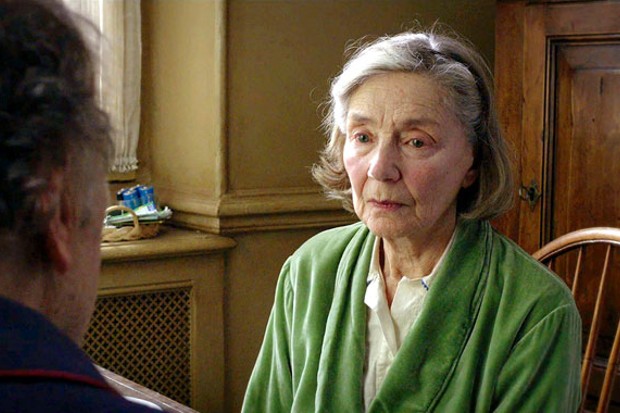
2012: French legend EMMANUELLE RIVA got her first and only Oscar nomination as a renowned pianist who suffers from a stroke in Michael Haneke’s Amour, also nominated for Best Picture. Together with fellow veteran Jean-Louis Trintignant, Riva gives a piercing portrayal of love in the face of deterioration, both physical and mental. However, Riva wasn't the only major contender for a non-English language performance. Oscar winner Marion Cotillard was poised to return to the Oscar race for her role as a trainer in a marine park who ends up with amputated legs after an accident at work. It is haunting work from Cotillard (aided by her chemistry with co-star Matthias Schoenaerts). Cotillard snagged Critics’ Choice, Golden Globe, BAFTA, and SAG nominations so she probably came close to the Oscar nod.
 2013: While the subtitled contenders this year were long shots at best, they had their own fanfare during awards season. Adèle Exarchopoulos is the heartbreaking core of the controversial queer romance Blue is the Warmest Color, giving a performance of harrowing rawness alongside co-star Lea Seydoux. Meanwhile, recent Oscar nominee Bérénice Bejo won Best Actress at Cannes for her intense work in Asghar Farhadi’s The Past, Iran’s submission for Foreign Language Film. Paulina Garcia did terrific work in Sebastián Lelio’s comedy Gloria, Chile’s submission. The film would ultimately have an American remake with Julianne Moore in Garcia’s role.
2013: While the subtitled contenders this year were long shots at best, they had their own fanfare during awards season. Adèle Exarchopoulos is the heartbreaking core of the controversial queer romance Blue is the Warmest Color, giving a performance of harrowing rawness alongside co-star Lea Seydoux. Meanwhile, recent Oscar nominee Bérénice Bejo won Best Actress at Cannes for her intense work in Asghar Farhadi’s The Past, Iran’s submission for Foreign Language Film. Paulina Garcia did terrific work in Sebastián Lelio’s comedy Gloria, Chile’s submission. The film would ultimately have an American remake with Julianne Moore in Garcia’s role.
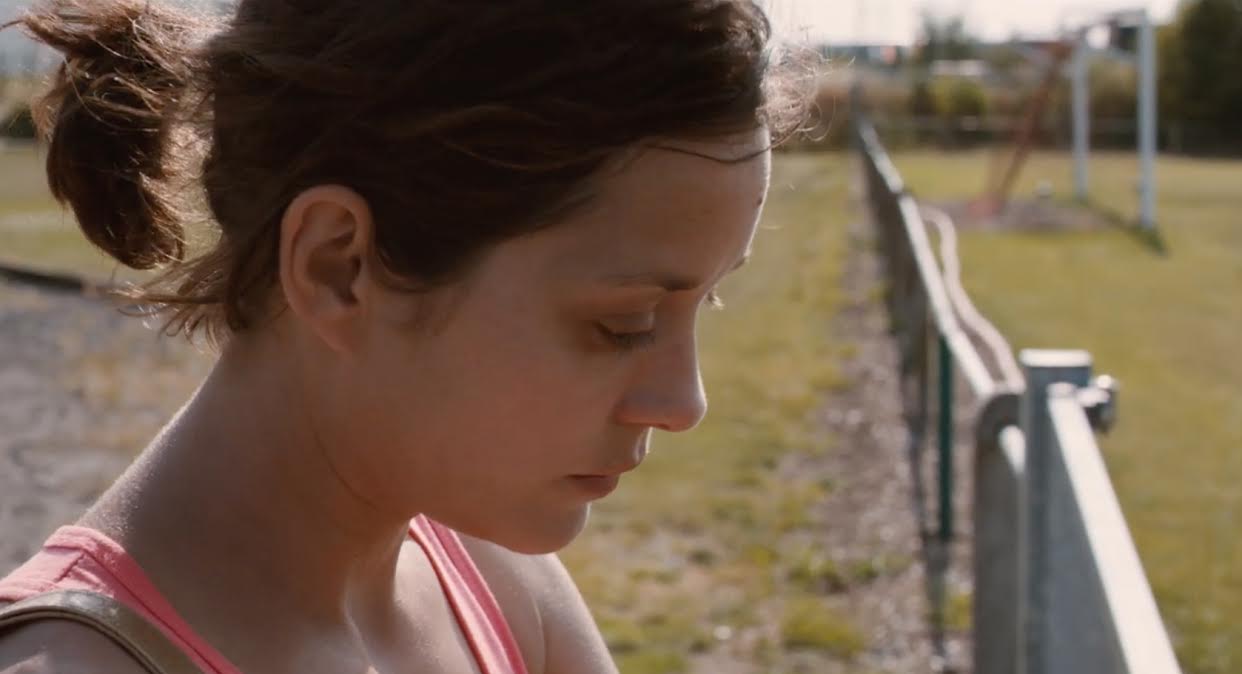
2014: After missing in 2012 despite all those precursors, MARION COTILLARD returned to the Oscars with a surprise nomination as a depressed factory worker fighting for her job in the Dardennes’ gritty drama Two Days, One Night, Belgium’s submission that year. Cotillard overcame the film’s lack of a Foreign Language Film nomination, minimal precursor support, and potential vote-splitting with another acclaimed performance from her that year in The Immigrant. How'd she manage that? By delivering a performance of sheer force and brutal honesty. But she wasn't the only viable contender that year; if Canada’s submission Mommy had done better (which it should have), we might have seen more buzz for Anne Dorval’s passionate portrayal of a mother of a mentally challenged teenage boy, showing motherhood and all its ups and downs. It was exciting work in a year that was unfairly called "weak" for actressing.
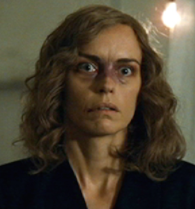 2015: The closest that we had for a subtitled contender that year was Nina Hoss for her searing portrayal of a Holocaust survivor in the German drama Phoenix. Unrecognizable to her husband after a facial reconstruction surgery, Hoss’ Nelly Lenz sets out to determine if her own husband had betrayed her. Her performance demonstrated acute control in mining the unpleasant journey of the character. It is also the kind of work that requires patience from the viewers; with minimal showy scenes throughout the film, it all culminates in an ending that is both deeply unsettling and unconventionally moving. Gathering a few mentions from critics’ awards, Hoss’ work in the film remains acclaimed to this day.
2015: The closest that we had for a subtitled contender that year was Nina Hoss for her searing portrayal of a Holocaust survivor in the German drama Phoenix. Unrecognizable to her husband after a facial reconstruction surgery, Hoss’ Nelly Lenz sets out to determine if her own husband had betrayed her. Her performance demonstrated acute control in mining the unpleasant journey of the character. It is also the kind of work that requires patience from the viewers; with minimal showy scenes throughout the film, it all culminates in an ending that is both deeply unsettling and unconventionally moving. Gathering a few mentions from critics’ awards, Hoss’ work in the film remains acclaimed to this day.
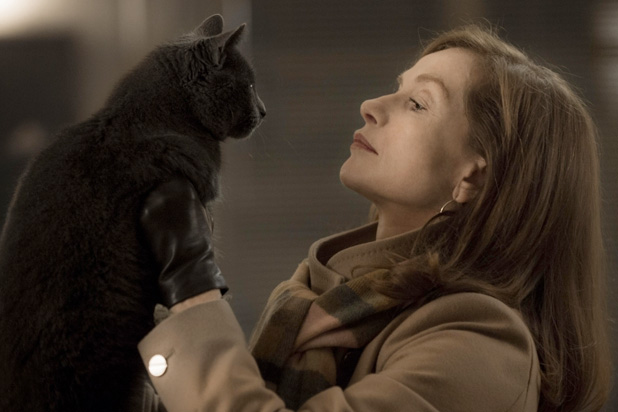
2016: After being ignored for her tremendous work for the past few decades, ISABELLE HUPPERT finally received her first Oscar nomination for the twisted thriller Elle. As a video game company CEO on the hunt to find her rapist, Huppert expertly manages the film’s ever-shifting tones, from its dark psychosexual currents to its pitch black comedy. Huppert also had a fascinating awards run that year: she won Best Actress from the Golden Globes, Gotham, and Independent Spirit Awards while she earned major critics’ awards not only for Elle, but for her work in Mia Hansen-Løve’s Things to Come. Meanwhile, Sandra Hüller became a critics’ favorites for her work in the epic-sized comedy Toni Erdmann, Germany’s nominee in the Foreign Language category.
 2017: Diane Kruger started her awards run with a Best Actress win at Cannes for her work in Germany’s In the Fade. As the woman who lost her husband and son to a hate crime perpetrated by neo-Nazis, Kruger is powerful as she forges into a dark path towards justice. While the film missed an Oscar nomination for Foreign Language Film, it did manage the Golden Globe win. The film that did win the Oscar in that category was Chile’s A Fantastic Woman, featuring Daniela Vega’s moving portrayal of grief compounded with transphobia. We are yet to see a trans person nominated for an acting Oscar, but Vega was arguably the highest profile contender to date in Best Actress.
2017: Diane Kruger started her awards run with a Best Actress win at Cannes for her work in Germany’s In the Fade. As the woman who lost her husband and son to a hate crime perpetrated by neo-Nazis, Kruger is powerful as she forges into a dark path towards justice. While the film missed an Oscar nomination for Foreign Language Film, it did manage the Golden Globe win. The film that did win the Oscar in that category was Chile’s A Fantastic Woman, featuring Daniela Vega’s moving portrayal of grief compounded with transphobia. We are yet to see a trans person nominated for an acting Oscar, but Vega was arguably the highest profile contender to date in Best Actress.
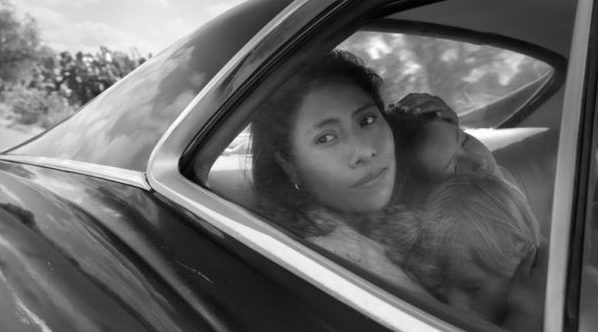
2018: One of the most delightful awards runs in recent memory, first-time actress YALITZA APARICIO was nominated for her performance as a soft-spoken housemaid in Alfonso Cuarón’s Best Picture frontrunner (for a time) Roma. Anchoring a humongous auteurial vessel, Aparicio occupies the space on the screen with vivid naturalism that makes the most mundane of human activities gripping. However, Roma wasn't the only non-English language film that went big that year at the Oscars. Poland’s Cold War posed as a potential spoiler in Cinematography and Foreign Language Film. The film's leading actress Joanna Kulig played a singer caught in a tumultuous romance. Kulig portrays her character with evocative abandon that raises the stakes of this passionate romance. It was quite thrilling to see Roma and Cold War go head-to-head that year.
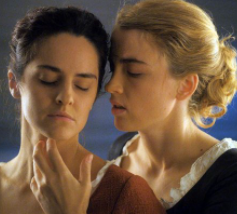 2019: One of the most acclaimed non-English language film of the year, Portrait of a Lady on Fire lit the screen with a high intensity romance and immediately inspired a devout fanbase. It even had a healthy awards run despite not being selected as Frace’s submission for the renamed Best International Feature Film category. Its stars Adèle Haenel and Noémie Merlant provide performances of unpredictable dynamics that capture the growing passion of the film’s central relationship. Both received attention especially from European award-giving bodies.
2019: One of the most acclaimed non-English language film of the year, Portrait of a Lady on Fire lit the screen with a high intensity romance and immediately inspired a devout fanbase. It even had a healthy awards run despite not being selected as Frace’s submission for the renamed Best International Feature Film category. Its stars Adèle Haenel and Noémie Merlant provide performances of unpredictable dynamics that capture the growing passion of the film’s central relationship. Both received attention especially from European award-giving bodies.
Which non-English language performances would you have nominated for Best Actress this past decade?